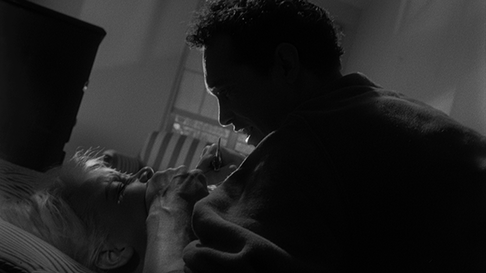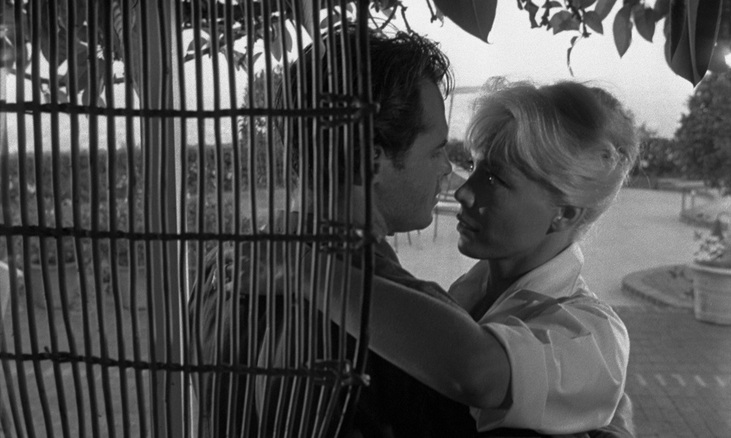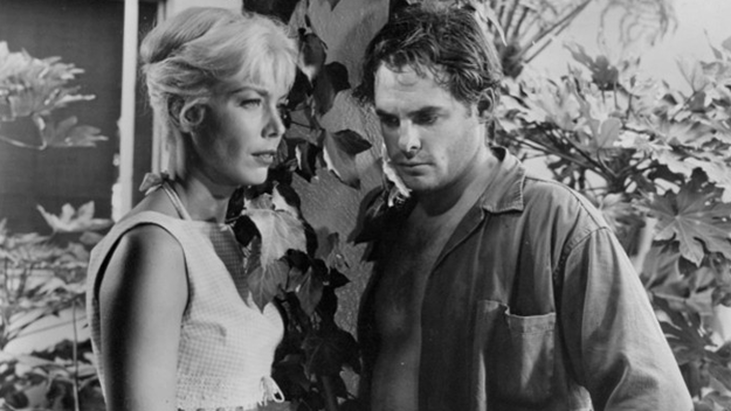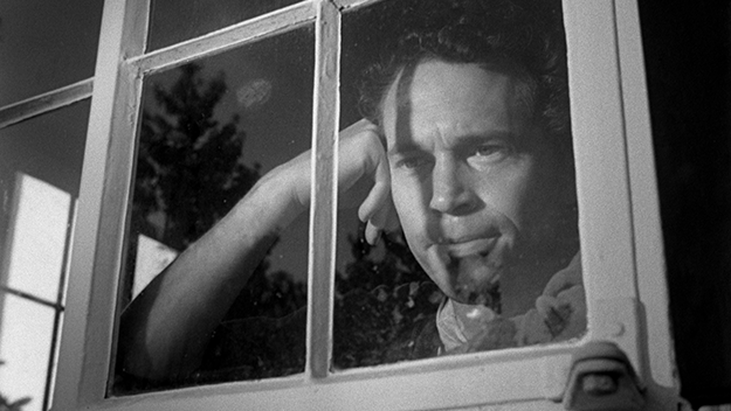 Leslie Stevens' Private Property is an alluring piece of filmmaking, an expertly crafted noir-esque thriller that uses its tight narrative to examine the relationship between desire, gender, and class tension. The film is centered around Duke and Boots, two young thugs, who emerge from the beach dunes in Malibu and proceed to hold up a California gas-station owner. Calmly sadistic and calculating, Duke is clearly the brains of the operation, a character who routinely pokes and prods his psychologically-challenged partner Boots, mainly over his lack of sexual conquest. Duke laments that he wants to help Boots seduce a woman, and when the beautiful Ann Carlyle, the upper-class wife of a insurance-company executive, enters the picture looking for directions, Duke and Boots concoct a plane. Following Ann to her beautiful home in the Hollywood Hills, Duke and Boots squat at the empty neighbors house, with Duke slowly using charming manipulation to stroke the conscious of a woman in Ann who isn't having her own desires completely met by her husband. Private Property touches on class to a degree, but the film's core examination is centered around the genetic evolutionary-defined roles of gender, where the man's role as a hunter/gather/provider and the female's role as a nurturer create a dangerous cocktail between the calmly sadistic Duke, who manipulatively champions himself as a poor man looking for work, and the sexually-repressed Ann, whose considerably wealth and genetically engineered penchant for nurturing enables her to help. In Private Property, Ann's beauty serves as her potential demise in a sense, with every male character pining for her, as Duke at one point even proclaims "if I can't have you no one will". By the end of the film both Duke and Boots fight to the death for Ann's affection, both treating her like a possession in which they are owed. Duke was introduced as a sadistic character long before his seduction of Ann, so I'd argue this film is not about modern day feminism principles themselves, but more about the powerful forces of desire and passion, with Ann herself becoming a slave to her impulses, unable to reject her primal, carnal desires. All these characters respond to their primal states, as if Private Property is merely a subtle statement about humanities' desire and struggle to break free from these genetically-defined, evolutionary traits. Private Property is an extremely well photographed film, with Stevens use of depth of frame particularly standing out, routinely obstructing the foreground of the composition in an attempt to evoke the emotions of its characters. One example of this is when Ann gives in to her sexual desires and proceeds to share a long kiss with Duke. Stevens places a birdcage in the foreground of the frame, a visually representation of Ann's restricted sexuality and desire. caged. unable to break free. The opening shot of the film also stood out to me, a simple shot that sees Duke and Boots emerging from the sands of Malibu. While simplistic, the angle and the ambiance of the scene evoke a sense of danger about these two characters, as if they are emerging from the primordial ooze of masculinity. Voyeuristic compositions are also used throughout to create tension, with Duke and Boots routinely watching the beautiful Ann from afar, calculating their next move. An extremely well-crafted film, Leslie Steven's Private Property is an underappreciated gem which provides a complex and fascinating examination of the primal urges of humanity.
0 Comments
Leave a Reply. |
AuthorLove of all things cinema brought me here. Archives
June 2023
|



 RSS Feed
RSS Feed
